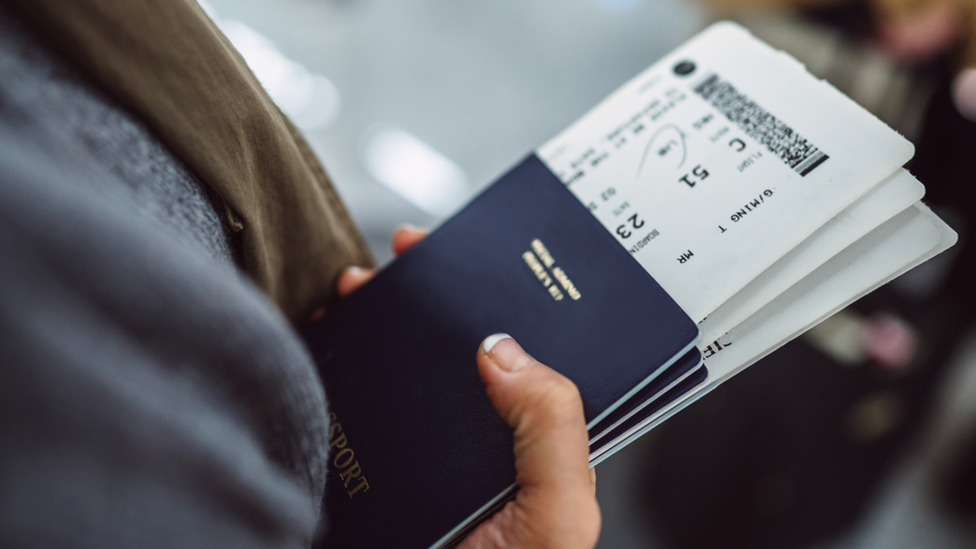Train strikes: Walkout brings early end for Christmas Eve services
- Published
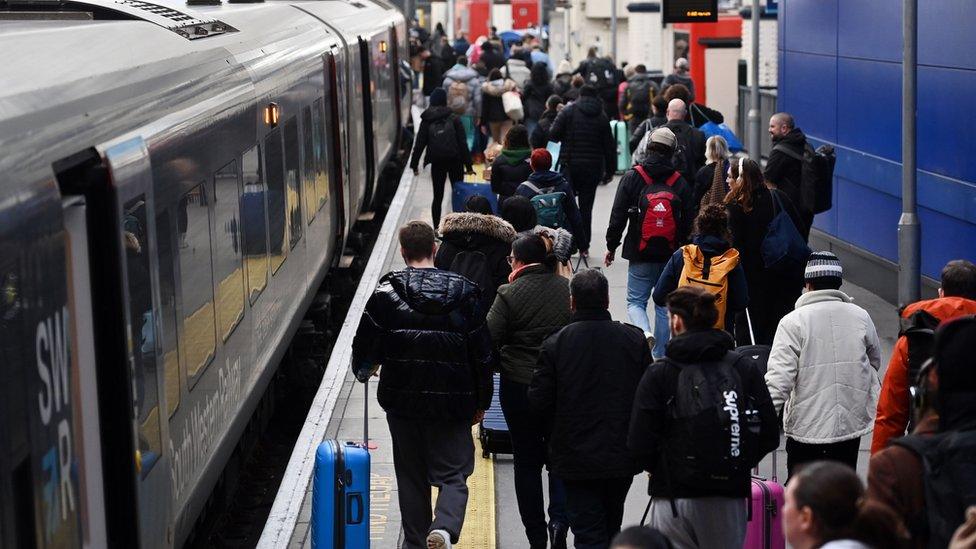
Christmas Eve commuters rush to get trains at Waterloo Station in London
Rail passengers scrambled to catch the last trains as further strikes ended Christmas Eve services.
Some roads were hit with congestion as rail services stopped ahead of a 18:00 GMT walkout by RMT union members.
But the AA said disruption was "not as bad as expected" as people headed home for the festive period.
Postal workers and Border Force staff also took part in the latest walkouts over pay in the run-up to Christmas.
Services to Crewe, Manchester Piccadilly, Glasgow Central and Birmingham International from Euston were among those delayed because of a limited staff presence.
Around 1,000 Border Force workers began strike action on Friday at Heathrow, Gatwick, Manchester, Birmingham, Cardiff and Glasgow airports, as well as the Port of Newhaven.
Border disruption has been minimal, with military personnel and civil servants being drafted in to cover strikers.
Heathrow Airport said operations were running smoothly on Saturday. A spokesperson added: "The immigration halls are free flowing with Border Force and the military contingency providing a good level of service for arriving passengers."
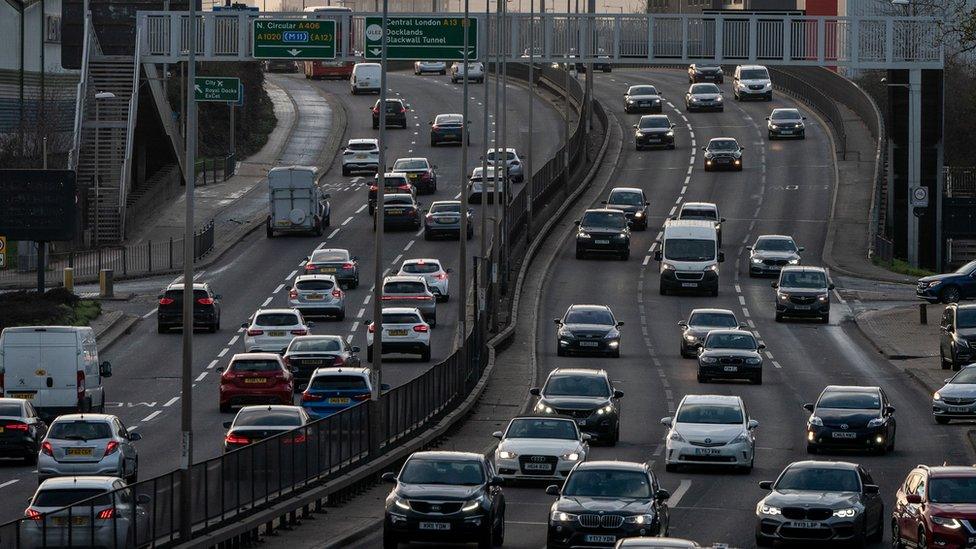
Traffic on the A13 in London as people make their Christmas Eve getaway journeys
Border Force personnel will be striking until the end of the year - with the exception of 27 December - but there are warnings strikes could last for months unless a new pay deal is negotiated.
Meanwhile industrial action at Network Rail, which maintains the UK's rail system, will continue until 06:00 on 27 December.
The last train times on major routes on Christmas Eve included the 09:45 from Leeds to London, the 11:22 from London to Edinburgh, and the 12:48 from London to Manchester.
Families at London's Paddington Station told BBC News they felt anxious over the strikes.
Leela, Richard and their baby Kalinda said they were on their way to Bristol to spend their first Christmas with family since the pandemic, but had been "checking all week that the trains were not going to be cancelled".
Meanwhile a couple of miles away at Euston Station, Kartik Aggarwal's train has been cancelled. The 24-year-old student said he faced missing a Christmas party in Birmingham.
"It's been really bad," he said. "We were planning for a long time only to have two trains get cancelled with no notification."
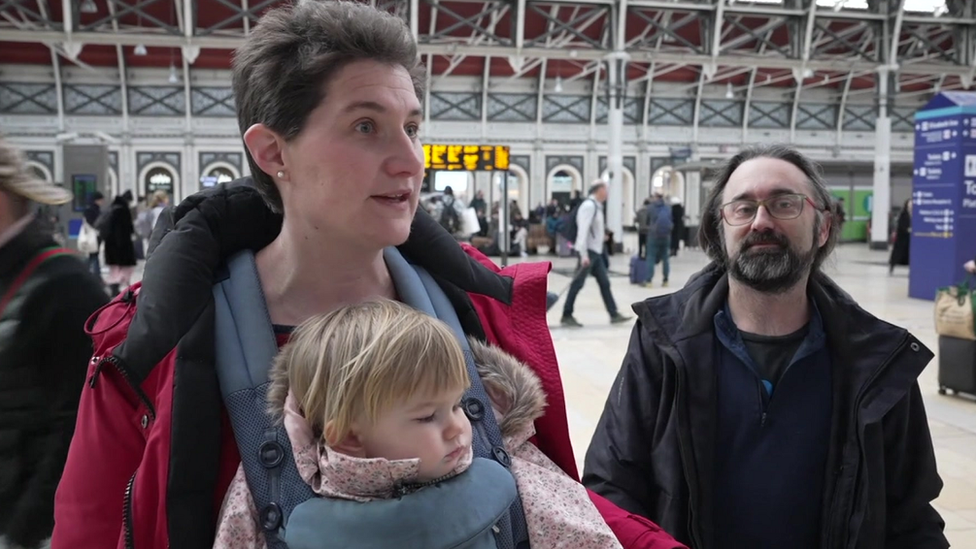
Leela and her family at Paddington Station on Saturday morning
Elsewhere, Ollie Smith, 29, was travelling from Reading to Stockport to spend Christmas with his brother, but said his train got held up outside Birmingham New Street over limited capacity at the station due to engineering works.
He said the train was then reversed back to Birmingham International and cancelled - while he was still on board.
Jack Couzens, head of roads policy at the AA, said traffic on the roads was moving fairly well so far on Saturday but added that rail strikes had led to more people "jumping into their cars".
"There have been pockets of congestion on the A13, the M25, the M5... but as things stand traffic is moving okay," he said at lunchtime.
The railway strikes come at a time of widespread industry walkouts, as staff across a range of sectors are involved in disputes over pay, jobs and working conditions as the cost of living soars.
Other industrial action on Saturday included:
More than 115,000 Royal Mail workers from the Communication Workers Union are walking out on one of the busiest days for pre-Christmas deliveries. Letters won't be delivered, although some parcels are still being dispatched
Some National Highways traffic officers are on strike in London and south-east England. National Highways says no roads will be closed and it has "well-rehearsed resilience plans in place"
Bus drivers for Abellio in London are walking out. The routes affected are mostly in south and west London.
Elsewhere, ambulance drivers, nurses and driving examiners are all set to strike at various points over the festive period and into the new year.
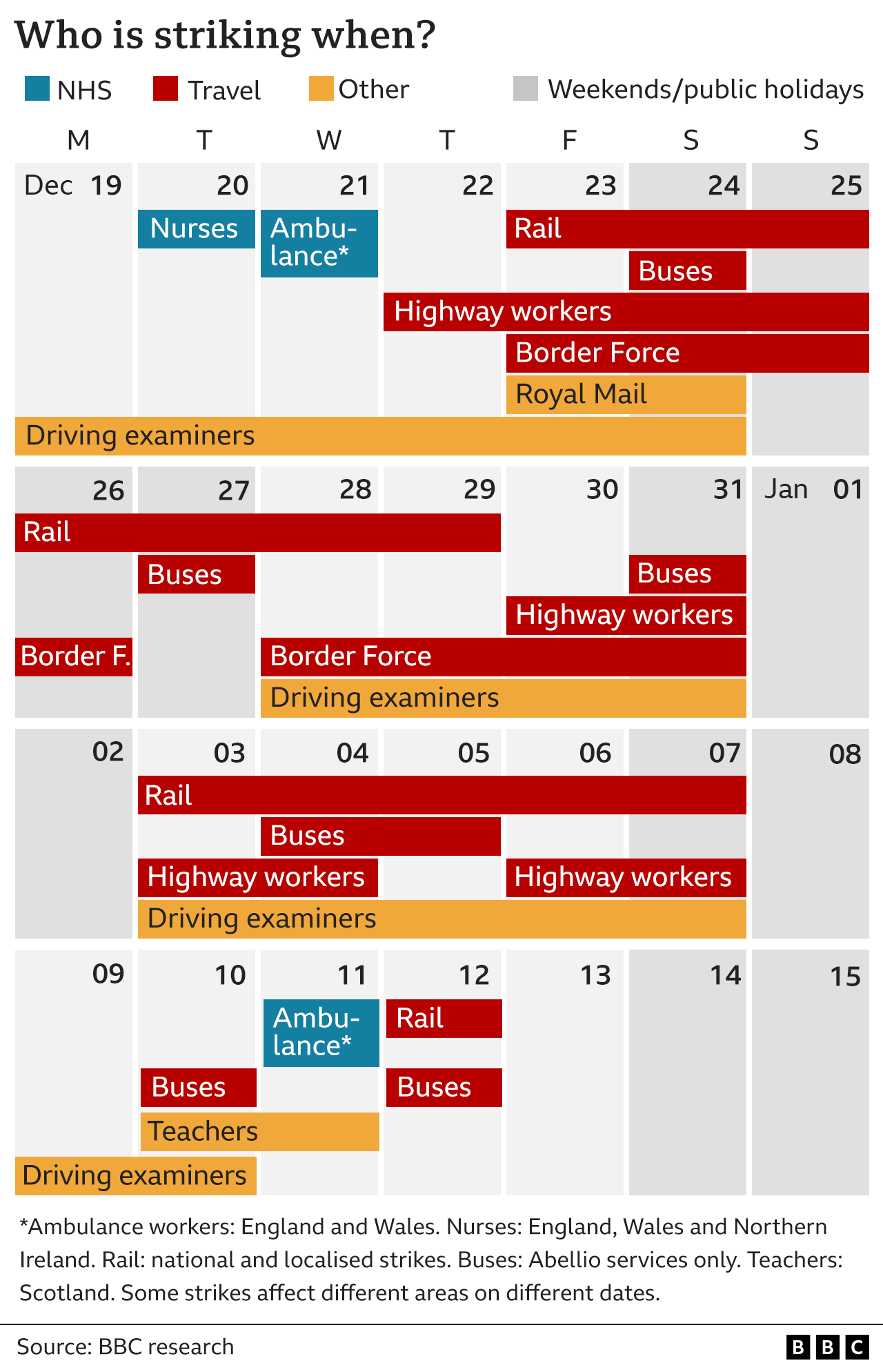
Previous rail strikes caused major disruption and the RMT is due to hold further walkouts on 3-4 January and 6-7 January.
Union members have rejected offers in a dispute over pay, job security and working conditions.
The RMT said it remained available for talks. Network Rail said the deal it has put forward is "fair and affordable".
The government said it had facilitated talks and ensured a reasonable offer was put forward.
The number of working days lost to strike action was the highest since November 2011 in October, according to the Office for National Statistics (ONS).

Watch Make Sense of Strikes on iPlayer and find out more about why people are striking and whether industrial action works.


How are you affected by the Christmas Eve rail strikes? Share your experiences by emailing haveyoursay@bbc.co.uk, external.
Please include a contact number if you are willing to speak to a BBC journalist. You can also get in touch in the following ways:
WhatsApp: +44 7756 165803
Tweet: @BBC_HaveYourSay, external
Please read our terms & conditions and privacy policy
If you are reading this page and can't see the form you will need to visit the mobile version of the BBC website to submit your question or comment or you can email us at HaveYourSay@bbc.co.uk, external. Please include your name, age and location with any submission.
Related topics
- Published1 August 2023

- Published9 May 2024

- Published23 December 2022
